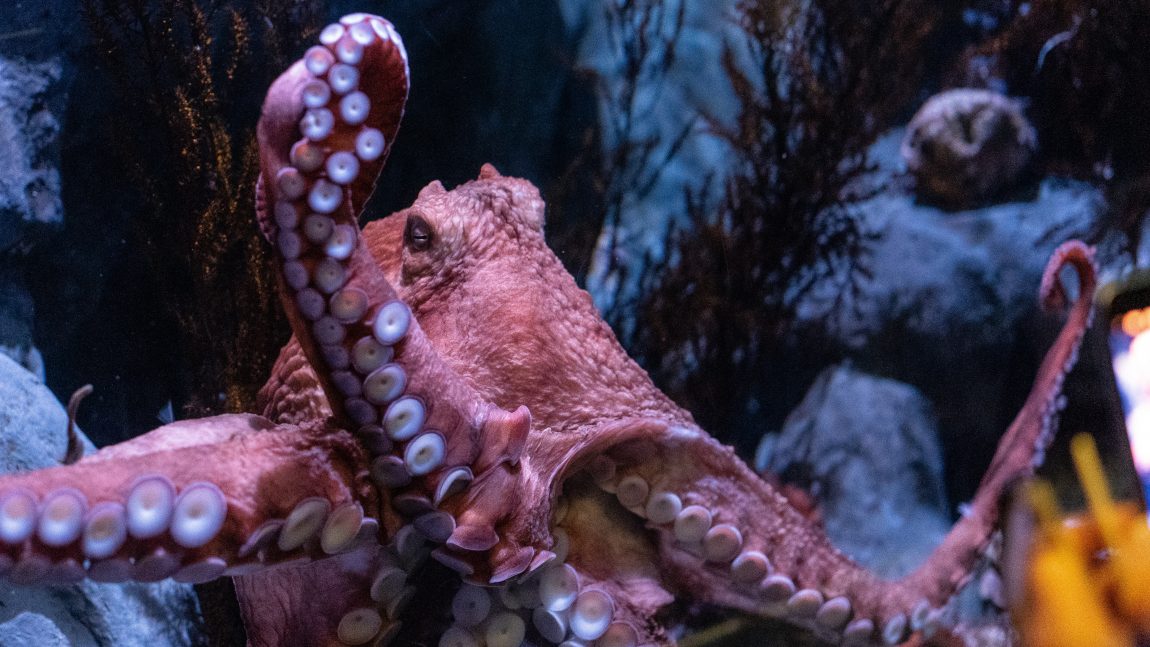Key Takeaways
- Octopuses are intelligent, versatile cephalopods with an impressive ability to adapt to various marine environments, from coral reefs to abyssal depths.
- They possess a complex nervous system, enabling behaviors like camouflage, problem-solving, and use of tools.
- Octopuses display fascinating reproductive strategies, with a lifecycle that includes a phase of intense parental care followed by the death of the parent.
- Their physical features, including a beaked mouth, three hearts, and copper-based blood, reflect their adaptation to a diverse range of habitats.
- Cultural representations of octopuses range from mythological sea monsters to modern symbols in movies and literature.
I recall the day I first encountered an octopus in the wild; it was a profound reminder of nature’s marvels. Skimming over the vibrant coral reefs off the coast of Hawaii, I spotted a day octopus camouflaged against the ocean floor. Its ability to blend into its surroundings was so seamless that it seemed as if the ocean itself had conjured it up.
Octopuses, or the plural octopuses as I learned, are remarkable for several reasons. Not only can they alter their skin’s texture and color to mimic their environment, but they also exhibit behaviors that suggest a high level of intelligence, often likened to that of domestic animals.
The octopus’s anatomy is a blueprint of evolutionary artistry. It has three hearts; two pump blood through each of the two gills, while the third sends blood through the body. When it swims, the main heart stops, demonstrating an extraordinary, if not exhausting, method of locomotion. Its blood, blue from the copper-rich protein hemocyanin, carries oxygen efficiently, adapting well to the octopus’s cold, oxygen-poor environment.
A defining moment during my dive was witnessing the octopus’s hunting strategy. With a sudden jet of water, it propelled itself towards a small fish, enveloping it with its arms in a fluid, almost hypnotic motion. It was a vivid demonstration of both the grace and the lethal efficiency of this cephalopod.
Octopuses also have a unique reproductive strategy. The males die shortly after mating, and the females after their eggs hatch. This poignant aspect of their life cycle highlights their solitary nature, with most of their existence spent alone except for mating.
The role of octopuses in mythology and culture is as layered and complex as their physical form. In various narratives, they have been feared and revered, represented as monsters and gods, from the Kraken of Norway to the Akkorokamui of Ainu folklore. Their depictions in art and literature, such as in Victor Hugo’s “Toilers of the Sea,” often symbolize the mysterious and untamed forces of the ocean.
In culinary terms, octopuses are a delicacy across many cultures, especially in Mediterranean and Asian cuisines. The ethical implications of their consumption, given their intelligence, are increasingly a topic of debate.
As stewards of the marine world, understanding and respecting the complexity of creatures like the octopus is crucial. Their adaptability and resilience reflect the broader health of our oceans, making them a subject of both scientific interest and cultural significance.
FAQs
- What is the lifespan of an octopus?
- Most octopuses have a short lifespan, ranging from as little as six months to up to five years, depending on the species.
- Are octopuses solitary?
- Yes, octopuses are generally solitary except during mating. They are known to live and hunt alone, inhabiting dens that they often create on the ocean floor.
- How do octopuses camouflage themselves?
- Octopuses can change their skin color and texture to blend into their surroundings, using specialized skin cells known as chromatophores and other structures for camouflage.
- Can octopuses feel pain?
- Yes, octopuses are capable of feeling pain. They have a complex nervous system that supports this sensory experience.
- Are all octopuses venomous?
- Yes, all octopuses are venomous, but only the blue-ringed octopus is known to be deadly to humans. Their venom contains neurotoxins effective in subduing their prey.





